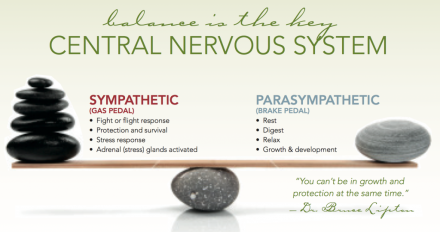Are We Too Sympathetic?

Have you ever felt exhausted caring for others? Ed Stetzer reports that “90% of pastors stated they are frequently fatigued and worn out on a weekly and even daily basis.” Many would say they feel called to carry out the second greatest commandment, “Love your neighbor as yourself.” The word agapao (love) focuses on preference, “choosing God’s choices and obeying them through His power, a discriminating affection which involves choice and selection.” We can choose to love ourselves the way the Lord prefers and love others in the same way!
All too often, being sympathetic to others involves feeling stressed, stimulating the “sympathetic” half of our nervous system. Our sympathetic involvement in the frustrations, conflicts, griefs, and difficulties of our neighbors, often causes our sympathetic nervous system to be in fight or flight, standing at attention, awaiting the next phone call to action. During seasons of “sympathetic” dominance, we may experience increased blood pressure, increased heart rate, increased blood clotting (which causes strokes), increased blood sugar (prediabetes), increased muscle tightness, high adrenaline (which can be addicting), decreased digestion, decreased saliva production, dilated pupils (light sensitivities), decreased lacrimation (dry eyes), and cold hands.
The autonomic (automatic) nervous system, which consists of both the sympathetic nervous system (fight or flight) and the parasympathetic nervous system (rest and digest) controls most of the body’s internal organs. When the system is out of balance, in “fight or flight” too often, it causes a multitude of stress-related illnesses. Seventy-five percent (75%) of pastors experience a significant crisis due to stress in the ministry (Fuller Institute, 1989-1992).
1 John 4:18 says, “There is no fear in love.” The word fear is phobos, meaning the alarm of dread, or the need to flee or withdraw (flight), feeling inadequate without sufficient resources for the situation. “But perfect love drives out fear… The one who fears is not made perfect in love.”
This is a good reminder and litmus test for each of us. Love drives out fear, anxiety, and the fight or flight stress response. Love can help us drive out sympathetic dominance, and stimulate the parasympathetic side of the nervous system, or help us to “rest and digest.” Here we experience increased saliva, increased lacrimation (tears), digestive enzymes are released, heart rate drops, muscles relax, pupils constrict. When I am in the parasympathetic side of the nervous system, I feel at rest, able to love everyone. When I am in sympathetic dominance, I am over-concerned about situations, and feel the need to fix things. I am more confrontational and controlling because I usually feel “right.” I’m afraid if I don’t fix this, we will be in danger.
I’m learning that when I find my hormonal system in sympathetic dominance, I’m not loving myself well, which means I can’t love others very well either. All too often, however, I can’t get my nervous system back into balance. The following strategies help to stimulate your parasympathetic “rest and digest” system: sleep or rest, exercise, solitude, massage, and hobbies or things you enjoy. Specifically, I’ve been reading that Acetylcholine is the primary neurotransmitter of the parasympathetic response, so you may want to take a choline supplement.
If most of your time serving the Lord is spent in fight or flight, it’s time to find the love. Don’t be TOO sympathetic!
Powered by WPeMatico
